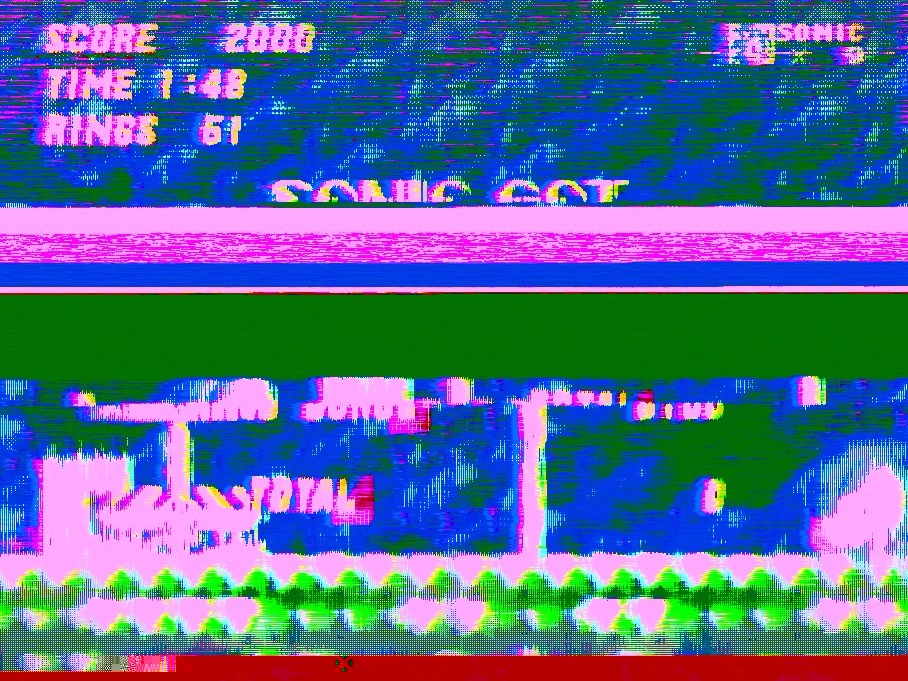- Grieves
Yeah. Well, my superhero name is Grieves. [Laughs.] I'm part of a record label out of Minnesota called Rhymesayers Entertainment and we kind of merged into the videogame world about a year ago because of what was going on with Twitch. A lady that works for us named Sarah had been doing PR for videogames for a very long time and was very immersed in that culture.
And so I met a lot of people from Square Enix and people at the Astro headset stuff. I met a lot of the Twitch people, a lot of pro gamers, and I started going to all of these big conventions like PAX and stuff and learning more and seeing how that breaks that I have taken to actually create music from probably about after high school to just a couple years ago, I saw the gaming industry just blow up and change. Like, the whole aspect of online gaming and everything like that, I mean, we used to play the Jedi Knight game online, but it wasn't the same. It wasn't as competitive. And it was crazy.
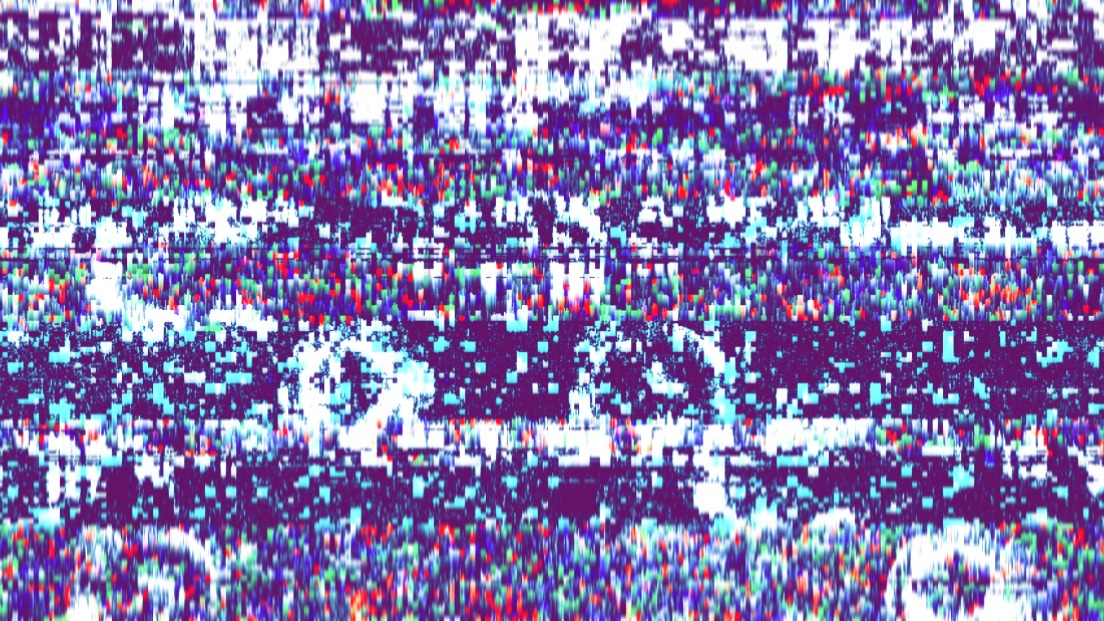
So, I mean, I started playing because Sarah got me into it and I started dabbling more in that world. I started looking at maybe doing music for videogames and meeting kinda people behind the scenes, which kinda like we were talking about earlier, it feels so similar to, like, going to South by Southwest and meeting all the people of the music industry. So I'm new to it for sure. [Laughs.]
I'd just kind of like to get going into the fire with a preface, like, I'm not, like -- I'm not really huge in that world. I'm associated with a lot of people that are. Like, my manager and Sarah sent something over that's like, "These videogame people wanna talk to you," I'm like, "Shit." Because they are so immersed in it that something that might make sense to them is kinda like, "Yeah, I play the Xbox?" [Laughs.]
- David
Well, like I mentioned before we started: I'm talking to a couple rappers for this. I wouldn't sweat it because it's not all on your shoulders. With us and this it's cool if you are like, "Man, I don't really know."
- Grieves
You know what? I'm not gonna lie to you. And maybe whatever I want to talk about will be helpful because it might be slightly ignorant. [Laughs.]
- David
Well, I don't know about "ignorant." With a lot of stuff around videogame culture, it is a lot of that, a lot of people who are shocked other people don't know all the nuances. And that's not what everyone sees.
- Grieves
Yeah.
- David
So it's not even ignorant. It's a valuable thing to know even if you're like, "I don't know." And you're just shrugging.
- Grieves
Yeah.
- David
But for me, what I'm thinking and hoping at some point to do an article about is the videogame industry and what they are presenting and what they've been presenting for a long time is it's just like Hollywood.
- Grieves
Oh yeah.
- David
But my theory and what I haven't really seen and what makes this a little explainy and what your manager and Sarah relayed was I want to write about, "Okay, well, what if videogames actually has more in common with rap? If so, what does that really mean?" I do think there are some commonalities. Some very broad ones. They both --
- Grieves
They both objectify women. [Laughs.]
- David
Yup. A lot of anger. A lot of rebellion. There was even stuff with Congress back in the '90s.
- Grieves
And a lot of it is make believe. [Laughs.] You know?
- David
Yeah. Why don't we start there? How are they both make believe?
- Grieves
Okay, well. I mean, first and foremost, art -- and videogames is art. Like, my childhood friend Ian Bowie, he now works for Treyarch or whatever. But he was the first person I ever met when I moved to Colorado. And he loved videogames and he loved Star Wars and he loved the art of creating story lines through his own Star Wars films, or making his own little videogames on the computer and that was beautiful art to him. He cared about it and he went to school for it and he now makes a living off that. And it's the same as if I make a living off my music because it means so much to me.
But although an art is a projection of self, it's an outlet. There's also a lot of make believe in art. There's a lot of things that we wish were going on or there's a lot of things that in our head the idea of that can be projected in so many different ways. Like, I can write a song about a breakup but the whole time, the lyrics are about a car or something like that.
Like, art can mean so many different things but it can also be a release. It can be a way to make up a world that you want to be in or a world that you don't want to be in.
- David
Yeah.
- Grieves
So, although the intention of art can be honest, it doesn't mean that it's real. You know?
- David
Yeah. This isn't where I expected for us to start, but you were saying that they both objectify women. Do you feel like they take different approaches to doing that? Like, does rap videogame objectify women in ways different from the way videogames do?
- Grieves
Eh, I mean, everything does. Does rap and videogames objectify women or is it Western culture that objectifies women, I guess, you know?
- David
[Laughs.] True.
- Grieves
It's not those two things and maybe they feed off of each other? No. Is it a big thing in both worlds? Totally. Like, how many friends am I gonna shove to a concert and people are gonna be like, "God, I'm so glad that you're not rapping about bitches, hoes, and money." Because that is a very broad -- it's a stereotype that happened with hip-hop because it become a very popular thing.
And same thing with videogames, like, how many female characters aren't busting out of their clothes or needing rescuing or getting killed or murdered or raped and also pretty similar in Hollywood, though, like you were saying.
- David
Yeah.
- Grieves
Some of that stuff went over my head until I started talking with Sarah about it. We were playing videogames one night and there was another dude in the session and he was just being a real piece of shit to her, but for some reason I thought that they knew each other and it was like, "Okay, you can cross that boundary because you guys know each other."
If you have a childhood friend that's a girl and you'd be like, "Oh, you bitch!" But you don't really mean it. I guess that's what I thought was going on. But this dude just thought since there was no repercussions he could talk to women like that.
The next day I got a phone call from Sarah and she was like, "Do you know that guy?"
I'm like, "No. Who is he?"
She's like, "I don't know who he is. Why would he talk to me like that?"
"Oh shit. I thought that you guys, like, had a thing where you guys were cool with that."
But I was wrong, and I feel like every time I turn on my microphone in a Call of Duty game or something like that, it's, like, some kid being a racist or trying to emasculate me or God forbid there's a female player in there and they're going in on it.
I don't really -- I'm kind of floating around right now. [Laughs.]
- David
No, you're fine. I mean, is it foolish or is it reductive? Should this one medium, videogames, look to rap or anything else for an idea of how to improve or assimilate better? Because I do think they're both big cultural things, but I think rap is mainstream in a way videogames are not -- even though they were both actively and aggressively ignored at first.
Everytime you read about videogames it's always about a product that's coming out or a company that's going out of business. Versus, like, there's a lot you can read about musicians.
- Grieves
Videogames is becoming a spectator thing, like a live concert. I mean, Madison Square Garden got sold out for a League of Legends thing, like, a year and a half ago, right? That's huge. So, now, it takes it into almost a whole 'nother realm because people are paying ticket price pretty much to go see them.
- David
Yeah.
- Grieves
So, even though hip-hop might be on a more mainstream level, I don't think -- I think it's just it is in a different way. Because -- I mean, it's because, you know, you got the rappers on the TV, you got the music videos, you got sold-out arena shows at Madison Square Garden. But, like, I don't really feel like -- especially now, more than ever, videogames aren't far behind that.
You don't have music videos but you do have live streaming. You have people going and watching people and turning pro gamers into almost, like, rock stars. I've been to these conventions. I've seen people like VernNotice and shit like that -- they can't even walk through the convention. They got chicks throwing themselves at them. They have dudes, like, too nervous to say shit around them. And everyone's taking pictures and asking for autographs. And it's like he's fucking Jay-Z or something.
- David
[Laughs.]
- Grieves
It's crazy. And I just would've never thought, because when that whole idea got brought to me I was like, "Wait. People pay to watch other people play videogames?" Because we used to fight over who got to actually play the videogame on a one-player thing and now people are, like, completely content to just watch. And that's so interesting to me because I took a huge break in my life from videogames when I discovered music and the technology of music and I started tinkering elsewhere. And so when I came back to it, it was just a completely different game.
- David
Do you feel like rap has influenced videogames or vice versa? Be it in production or culture? Do you see any direct links?
- Grieves
You know, without -- I mean, not direct links. If I had to stretch, I could maybe come up with something but I just don't really know because rap for me is just like a part of what I do and a part of influences me. And, you know, has maybe the music industry in general influenced it? That could be something. Maybe business and stuff like that. There's more than just that. I mean, you would probably have to say the whole entertainment industry, if you excluded the videogame industry from the entertainment industry, but movies and music play such a huge role in it and now you have actors doing, like -- fucking Kevin Spacey doing actual parts in a videogame.
The trailers that they play on the TV are are like movie trailers for the videogames and the music is like that big band, big composer and the studios that they work into these things are studios I'll never even get to see in my life because of these crazy, amazing studios with big-name producers and audio engineers and it's huge.
- David
Yeah.
- Grieves
And rap itself is, like, you gotta be Macklemore to be on that level of production because there's so much more going on.
- David
Yeah.
- Grieves
More than just a microphone and a turntable.
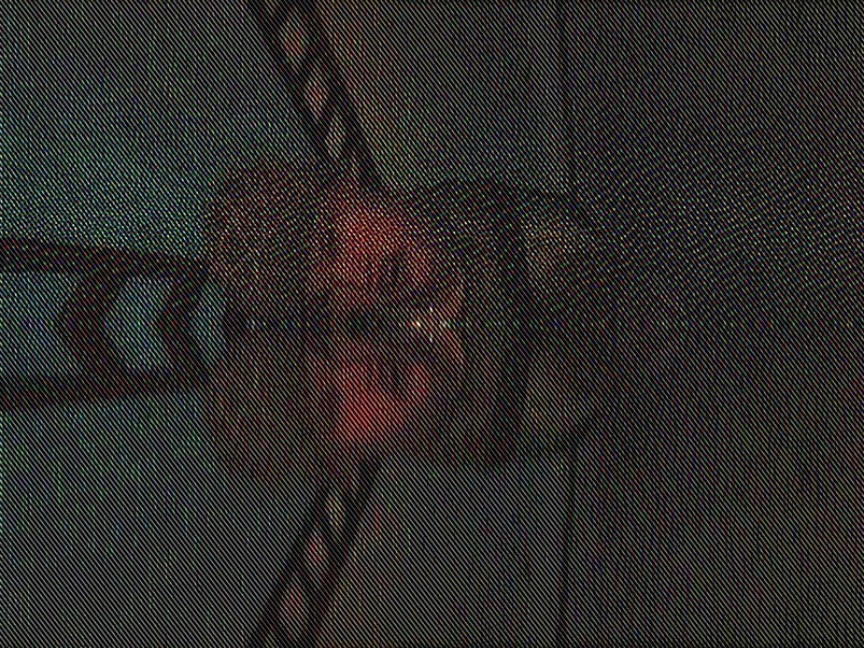
- David
[Laughs.] A lot of rap's central character comes from insecurity and compensation for that insecurity. Are there similar insecurities in videogames and do you see similar compensations for --
- Grieves
I do. Like, the No. 1 thing probably is the male bravado. Like, hip-hop -- everybody's first hip-hop song is, okay, most people's first hip-hop song is immediately like, "I'm the shit / I got rhymes this / doo-doo-doo-doo-doo / I'm better than you!"
- David
[Laughs.] Yeah.
- Grieves
And it's like, "Really? What the fuck did you just say to me?"
And videogame characters, the male character most of the time is like this stone-cold badass that wasn't like -- it's like, "Oh, okay, it's the end of the world. By the way, I know how to shoot, forge, build my own shelter, kill thousands of men and fuckin'." It's unrealistic projection of maybe who we are.
And maybe that's what's happening with the developers or something like that or maybe they just need a strong character. It's the same thing, but I'm not popping bottles in the club and pulling guns on my enemies. But if I say that, it puts me on this level. 'Cause not a lot of people are gonna test me on that. Especially if I say that I do that. And then the people that do want to me test me, that's why rappers get shot. [Laughs.] So. Yeah, I think we both overcompensate. But so do film producers and authors and folk singers and so does everybody else. [Laughs.]
- David
Do you think folk singers and authors and filmmakers, do you think they compensate in the same way?
- Grieves
I don't know. I think it's probably different. Like, I don't think a folk singer -- I'm sure some have, but I'm sure not all have “loved like the river" or whatever. [Laughs.] I'm sure authors, when they project those characters, like, that's not who they are. That's who they wanna be or it's who they want someone else to be or how they want things to be or how they don't want things to be.
That kind of ties back to that whole thing about art.
- David
Right.
- Grieves
Because it creates that platform for us to do so, it's not always healthy, it's not always good. And, you know, no matter what you do people are gonna be upset. But especially nowadays, people have gotten very comfortable with crossing certain lines.
- David
Yeah.
- Grieves
And, you know, hip-hop. Shit. We do that.
- David
Do you feel like mainstream rap has gotten less violent or has there been any change in how violent it has been? It has tapered back a bit.
That's my sense of it. I talked to a couple rap historians for this and one of them -- I don't know if because you can drop statistics on it that it feels more violent. That was another conversation, but my sense is that it has but how do you perceive that it's tapered back?
- Grieves
I guess for me -- well, let me tell you this: Hip-hop, especially in the mid-2000's turned into what people are talking about when they're like, "I hate that mainstream bitches and hoes rappin' in the club guns and money shit." Right?
- David
Yeah.
- Grieves
That was that era. That was when that got really -- maybe it was kinda starting up there in the late '90s. But it really was what you heard on the radio, and the big thing in 2002 to whenever, 2004 to whenever. And it was big and that has created this thing.
And now, you have artists that are younger and I'm not really sure where are their influences are coming from, but it is coming from that place. But it's also coming from other places. I think a really prime example of the curve was when Kendrick Lamar first started coming out. You know, he does have some violent stuff and maybe that's him being a product of his environment because he's from Compton.
But more than anything, he was weird. And he brought weirdness back to hip-hop because in the '90s, like, it was kind of weird. It was cool. He was still cool-guy dude, but it was more obscure, it was more weird, and art is weird. That whole idea of rapping over a beat and saying shit is weird. And he brought that back and mixed between this whole trap shit, which is kind of that thug-drug shoot-you-in-the-face stuff -- it's like you're getting a mixture of that with the weirdness and so I guess for me it feels a bit more diluted because there's something more there that I appreciate.
- David
When I started thinking of this parallel, I felt like, "Okay, mainstream rap has gotten less violent, but why is it mainstream videogames haven't gotten over that fixation?" I'm not asking you to answer that, but do you have any feelings for why we're still regularly shooting people in the face in every dimension and every direction?
- Grieves
Because videogame violence -- we wanna take our frustrations out and also probably there's a precedent that's been set. Ever since I was a kid there's been violent games. They weren't always so graphic, but, you know, with the progression of technology and the way that everything looks now it's still that same idea. It's no longer 8-bit block men chopping at each with sticks. [Laughs.] But it's still that same idea. We just have the technology to make it look almost real now.
I mean, we grew up playing with guns and G.I. Joes and we watched shit like Transformers and it's violent. Girls watch shows like Pretty Little Liars where there's a killer. There's like -- violence is in our culture. I guess it's of human nature.
I wonder if, with rap, maybe people got worn out on it because it was based in reality. It wasn't starting with those 8-bit block dudes you were talking about.
Exactly. Yeah. Yeah, but, you know, that first view into that world was, like -- it blew everyone away. Like, that was like, "Oh my God, this is what these guys are really living." And then it just got to the point where everyone saw how successful that was and people just started making shit up. And then that's when it got diluted and people stopped caring.
Yeah. But you don't think that's gonna happen in videogames?
If you said, "Put money on the table: yes or no?" I'd say that it wouldn't go away.
Okay. I'm not going to hold you to that. You aren't going to owe me money or anything.
Yeah. No. No. Yeah. [Laughs.]
[Laughs.]
It's just -- if I had to make a hard decision, I would probably say no because in able to change that, you'd have to probably change the way that videogames sell, and you'd have to change the way that people want to buy things, the way that people -- it would take a long time and you'd have to slowly rebuild that.
You'd have to kind of take it away slowly as you gave it something else. Like immunotherapy. Like, getting immune to snake venom. [Laughs.] You can't just take it all at once. You're gonna die. You have to slowly over time administer the snake venom. [Laughs.]
But, I mean, young kids like graphic-natured stuff. And our culture has been -- like, if you parents, when they were kids, or our grandparents, they didn't have things that graphic in their lives. Like, their situations and their world might've been a bit realer than ours. There weren't a lot of screens and not all much falsehood around, but -- I remember when I was a kid, like, Robocop came out. Like, I wanted to see Robocop. I wanted to see the crazy killer robot zombie cop.
- David
Yeah.
- Grieves
And then when I saw it, I wasn't all that pumped on it. I was like, "Oh, that guy's terrifying." But, I wanted what I couldn't have and the older we get we set a different threshold for our kids and so on and so forth. And media -- you have 10-year-old kids playing Call of Duty. Do they need that in their lives? Does it make them -- what does it do to them?
Like, I didn't have that and I'm fucked up enough as it is. [Laughs.]
- David
[Laughs.]
- Grieves
And I didn't have this graphic death all the time for my enjoyment.
- David
Yeah.
- Grieves
I had gangsta rap. But that was way past the early ages. I don't know. I guess it boils down to more than just what people are creating but also how are we gonna censor this? How are we gonna raise our kids? What are we gonna allow in our homes?
And if that started happening more I think that videogames would be forced to adjust because it's an industry. People need to sell videogames, you know? As much as people need to make them and this is their life and their enjoyment, it's not to say that they wouldn't be making Sonic the Hedgehog or whatever the fuck. If violent games stopped selling so much, people would stop making them so much.
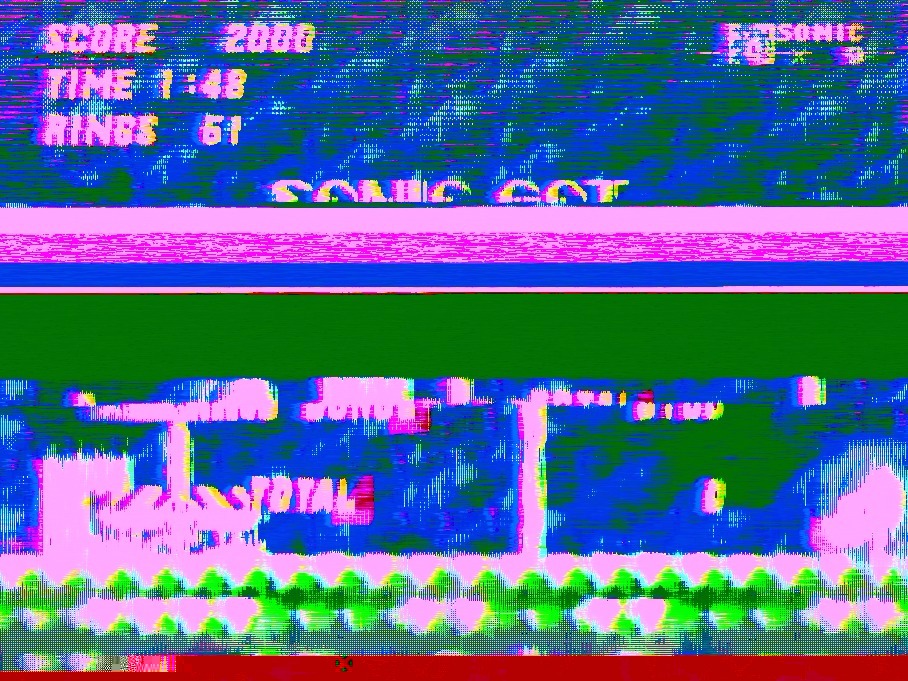
- David
Rap started off and it was rebelling against the music industry. I think videogames has a little bit of that in common. It definitely has a lot of -- I don't know if it's like, "Fuck you, mom and dad!" But what do you think: Do you think videogames are a rebellious culture? If so, what are they rebelling against?
- Grieves
I mean, that would have to be on a case-by-case basis, right?
'Cause some are, and then some are really falling in line with that. Some are very anti-Muslim and shit like that and it's -- yeah. I haven't seen a lot of games that make me rethink my own perspective. You know?
- David
Yeah.
- Grieves
Because I'm guilty of being one of those people that I'm talking about that, like, I just check out. When I'm playing videogames, a) I want to play a game that the rest of my friends are playing because I wanna play with them and then b) I just -- that's my escape. I'm in the studio nine hours a day in my own head creating, projecting, doing business, doing stuff I don't want to do a lot of the time and then when I come home and I take a load off, kick my shoes off, open a beer, and play some videogames.
And a lot of the time I end up with a Call of Duty game or something like that because it's what everybody is playing. [Laughs.] I don't have to really think about it, it's: boom boom, pow pow, run around. I suck at it. But it's not like -- that doesn't change my mind on anything and when you play the campaign mode it's like, "Yeah, the bad guys are terrorists and blah blah blah and you're a fuckin' God-fearing patriot and you're doing this and doing that." [Laughs.]
- David
Yeah.
- Grieves
To me, that doesn't go against the grain. That is very American, I guess. [Laughs.]
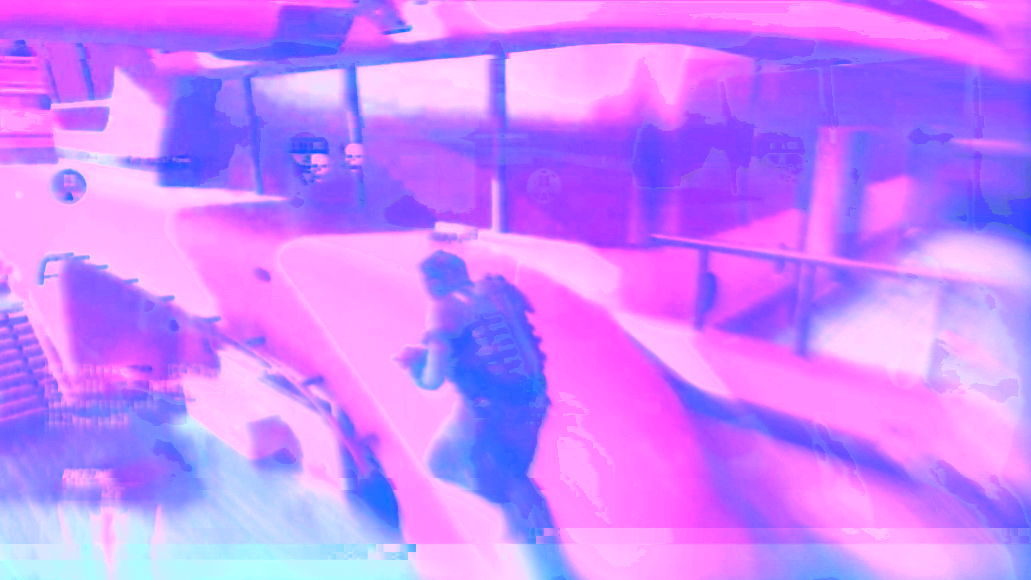
- David
Are you aware of games being made not at companies, but a handful of developers more or less completely on their own?
- Grieves
Some. I went to a pretty fun exhibit here in Seattle at the EMP that was called, like, the Indie Game Exhibit.
- David
Yeah.
- Grieves
It was awesome. That's where I discovered -- oh, what's the? I had the game, I can't even remember. It was the first Inuit Eskimo character and you have the fox with you and it's like a puzzle game?
- David
Yeah, I was just curious because not all games are Call of Duty --
- Grieves
Totally.
- David
-- so maybe this is more aimed at developers out on their own, but if people want to be making videogames broader, if they want to be pushing against all the violent stuff and push forward the way we think mainstream has, what do you think are lessons people could be taking from rap music and integrated into how they approach making games?
- Grieves
Man, that's interesting. I mean, I wouldn't really know how to give the end-all answer on that. For me, it's like I want the organic -- like, when I hear hip-hop, like, I don't really care for all the new bells and whistles, just kinda run-of-the-mill stuff. I want a bit of humanity back in my music. I want real instruments. I want that weirdness. In that realm, maybe that is something -- you know, if this is what I like, because I'm the only person answering this question, like, that would be exciting for me for a game. Like, maybe take it back to the basics.
Not saying that we're going back to 8-bit block men choppin' at each other. But more basic scenarios and the weirdness. Bring some weirdness back. Because once again, you are playing an alternate reality. That's weird. And maybe we don't have to cater people's animalistic needs all the time. We can cater to some more interesting things.
Thanks for reading! Please consider supporting my work directly.
Send a tip to David
